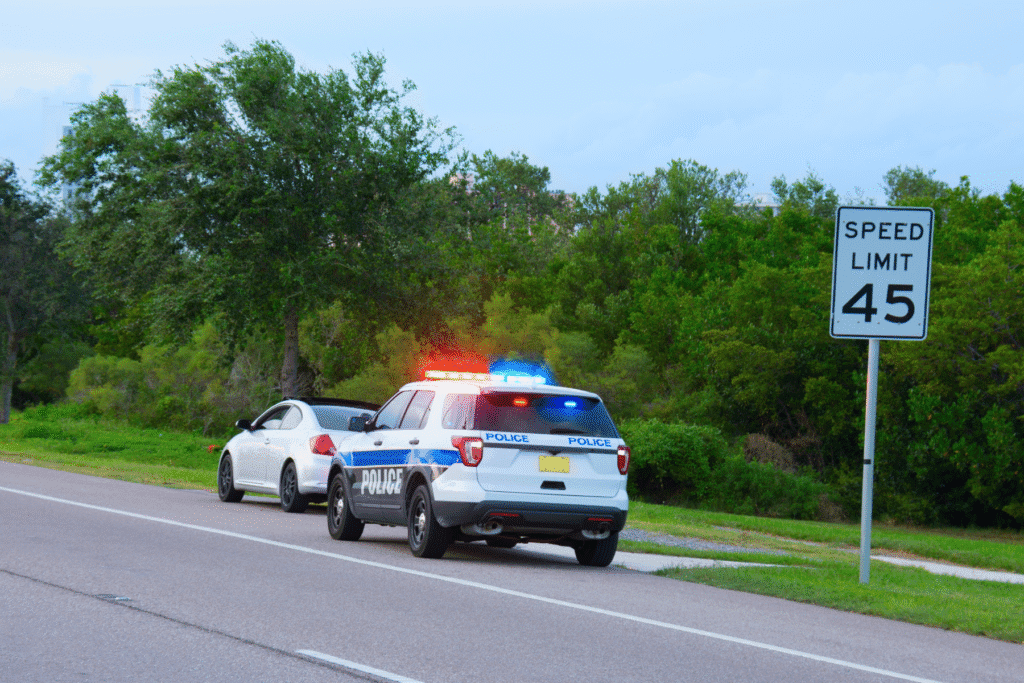What you Should Know
Understanding your rights during a traffic stop can be the difference between a routine encounter and a serious legal issue. One of the most common questions drivers in Arizona ask is: Can a police officer search my car without a warrant? The answer is yes, but only under specific legal conditions. Here’s what every Arizona driver should know about vehicle searches and the Fourth Amendment.
The Fourth Amendment and Vehicle Searches
The Fourth Amendment protects individuals from “unreasonable searches and seizures.” While law enforcement generally needs a warrant to conduct a search, an important exception exists for vehicles—due to their mobility and reduced expectation of privacy.
When Police Can Search Your Car Without a Warrant
In Arizona, law enforcement may legally search your vehicle without a warrant under the following scenarios:
- Probable Cause
If the officer sees, smells, or hears something suggesting illegal activity—such as the scent of marijuana or visible drug paraphernalia—they can perform a search without a warrant.
- Consent
If you say yes when asked, “Do you mind if I search your car?”, you’ve legally waived your right to refuse. Always remember that you have the right to say no—respectfully and clearly.
- Search Incident to Arrest
If you’re lawfully arrested, police may search the area within your immediate control for weapons or evidence, including parts of your car.
- Inventory Search
If your car is impounded, officers may inventory its contents. While meant for record-keeping, these searches often uncover evidence used in criminal cases.
- Protective Sweep (Officer Safety)
If an officer believes there may be a weapon within reach of the driver, they can conduct a limited search of that area—even without probable cause or a warrant. This safety measure is known as a protective sweep.
- Plain View Doctrine
If illegal items like drugs, firearms, or open containers are clearly visible through the window or door, an officer may seize them and conduct a broader search without a warrant.
When a Warrant Is Required
A warrant is required if none of the above exceptions apply. For instance, if you’re pulled over for a minor infraction—like a broken taillight—and the officer has no reason to suspect a crime or see anything illegal, they cannot search your vehicle without a warrant or your consent.
What to Say If Asked for Consent
It’s your legal right to say no. A calm and firm statement like:
“I do not consent to any searches.”
…is enough. Avoid arguing or interfering—your goal is to assert your rights clearly and respectfully.
Why Illegal Searches Matter
If an officer conducts an unlawful search, any evidence found may be deemed inadmissible in court. A skilled defense attorney can challenge the legality of the search and move to suppress the evidence—sometimes resulting in reduced charges or full dismissal.
Talk to a Criminal Defense Attorney in Arizona
Think your rights were violated during a vehicle search? Contact Rideout Law Group. Our legal team—serving Scottsdale, Lake Havasu, and beyond—has successfully defended hundreds of clients facing criminal charges tied to unlawful police searches.
We’re ready to stand up for your rights and help you move forward with confidence.
📍 Contact Our Offices
Rideout Law Group – Scottsdale
11111 N Scottsdale Rd, Suite 225
Scottsdale, AZ 85254
📞 (480) 584-3328
View on Google Maps
Rideout Law Group – Lake Havasu City
2800 Sweetwater Ave, Suite A104
Lake Havasu City, AZ 86406
📞 (928) 854-8181
View on Google Maps

